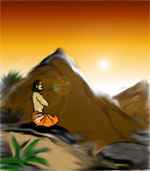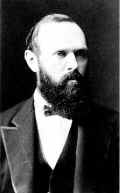“We owe a lot to the Indians, who taught us how to count, without which no worthwhile scientific discovery could have been made”. — Albert Einstein
When I read the Bhagavad-Gita and reflect about how God created this universe everything else seems so superfluous. - Albert Einstein
“India is the cradle of the human race, the birthplace of human speech, the mother of history, the grandmother of legend and the great grandmother of tradition”. — Mark Twain
“If there is one place on the face of earth where all dreams of living men have found a home from the very earliest days when man began the dream of existence, it is India”. — French scholar Romain Rolland
“India conquered and dominated China culturally for 20 centuries without ever having to send a single soldier across her border”. — Hu Shih (Former Chinese ambassador to USA)
more…
“So far as I am able to judge, nothing has been left undone, either by man or nature, to make India the most extraordinary country that the sun visits on his rounds. Nothing seems to have been forgotten, nothing overlooked.” - Mark Twain
“Civilizations have arisen in other parts of the world. In ancient and modern times, wonderful ideas have been carried forward from one race to another…But mark you, my friends, it has been always with the blast of war trumpets and the march of embattled cohorts. Each idea had to be soaked in a deluge of blood….. Each word of power had to be followed by the groans of millions, by the wails of orphans, by the tears of widows. This, many other nations have taught; but India for thousands of years peacefully existed. Here activity prevailed when even Greece did not exist… Even earlier, when history has no record, and tradition dares not peer into the gloom of that intense past, even from until now, ideas after ideas have marched out from her, but every word has been spoken with a blessing behind it and peace before it. We, of all nations of the world, have never been a conquering race, and that blessing is on our head, and therefore we live….!” - Swami Vivekananda, Great Indian Philosopher
“If I were asked under what sky the human mind has most fully developed some of its choicest gifts, has most deeply pondered on the greatest problems of life, and has found solutions, I should point to India” - Max Mueller
“India was the mother of our race and Sanskrit the mother of Europe’s languages. She was the mother of our philosophy, mother through the Arabs, of much of our mathematics, mother through Buddha, of the ideals embodied in Christianity, mother through village communities of self-government and democracy. Mother India is in many ways the mother of us all.” -Will Durant
“In India, I found a race of mortals living upon the Earth, but not adhering to it, inhabiting cities, but not being fixed to them, possessing everything, but possessed by nothing” - Apollonius Tyanaeus (Neo-Pythagorean)
Greeks, Scythians, Parthians, Kushans, Huns, Arabs, Mongols, Turks, Muslims, Portuguese, French, English, all went after one civilisation: India and prospered. It lost everything except its soul (spirituality). It will regain its true place in this world and its Sun will rise again. - Aggyatt Manav
"She (India) has left indelible imprints on one fourth of the human race in the course of a long succession of centuries. She has the right to reclaim … her place amongst the great nations summarizing and symbolizing the spirit of humanity. From Persia to the Chinese sea, from the icy regions of Siberia to Islands of Java and Borneo, India has propagated her beliefs, her tales, and her civilization!" - Sylvia Levi
"There has been no more revolutionary contribution than the one which the Hindus (Indians) made when they invented zero." - Lancelot Hogben
"India – The land of Vedas, the remarkable works contain not only religious ideas for a perfect life, but also facts which science has proved true. Electricity, radium, electronics, airship, all were known to the seers who founded the Vedas." - Wheeler Wilcox (American poet)
"After the conversations about Indian philosophy, some of the ideas of Quantum Physics that had seemed so crazy suddenly made much more sense." - W. Heisenberg (German Physicist)
"Our present knowledge of the nervous system fits in so accurately with the internal description of the human body given in the Vedas (5000 years ago). Then the question arises whether the Vedas are really religious books or books on anatomy of the nervous system and medicine."- Rele (Jewish writer)
"The Indian way of life provides the vision of the natural, real way of life. We veil ourselves with unnatural masks. On the face of India are the tender expressions which carry the mark of the Creator’s hand." - George Bernard Shaw (Irish playwrite)
"After a study of some forty years and more of the great religions of the world, I find none so perfect ,none so scientific, none so philosophical and no so spiritual that the great religion known by the name of Hinduism. Make no mistake, without Hinduism, India has no future. Hinduism is the soil in to which India’s roots are stuck and torn out of that she will inevitably wither as a tree torn out from its place. And if Hindus do not maintain Hinduism who shall save it? If India’s own children do not cling to her faith who shall guard it? India alone can save India and India and Hinduism are one." - Annie Besant (English theosophist)
"To the philosophers of India, however, Relativity is no new discovery, just as the concept of light years is no matter for astonishment to people used to thinking of time in millions of kalpas, (A kalpa is about 4,320,000 years). The fact that the wise men of India have not been concerned with technological applications of this knowledge arises from the circumstance that technology is but one of innumerable ways of applying it."- Alan Watts (English philosopher)
"India was the motherland of our race, and Sanskrit the mother of Europe’s languages: she was the mother of our philosophy; mother, through the Arabs, of much of our mathematics; mother, through the Buddha, of the ideals embodied in Christianity; mother, through the village community, of self-government and democracy.
Mother India is in many ways the mother of us all. Nothing should more deeply shame the modern student than the recency and inadequacy of his acquaintance with India….This is the India that patient scholarship is now opening up like a new intellectual continent to that Western mind which only yesterday thought civilization an exclusive Western thing." - Will Durant (American philosopher)
"Going forward, you have a broad and beautiful street, full of rows of fine houses and streets of the sort I have described, and it is to be understood that the houses belong to men rich enough to afford such. In this street live many merchants, and there you will find all sorts of rubies, and diamonds, and emeralds, and pearls, and seed pearls, and cloths, and every other sort of thing there is on earth and that you may wish to buy" - Domingos Paes (Portuguese traveler who visited Hampi during (AD 1520-22) during the reign of Krishnadevaraya: Vijayanagar Empire)
"Towns and villages have inner gates; the walls are wide and high; the streets and lanes are torturous, and the roads winding. The thoroughfares are are dirty and the stalls arranged on both sides of the road with appropriate signs. Butchers, fishers, dancers, executioners and scavengers, and so on, have their abodes without the city. In coming and going these persons are bound to keep on the left side of the road till they arrive at their homes. Their houses are surrounded by low walls and form the suburbs. The earth being soft and muddy, the walls of the town are mostly built of bricks or tiles. The different buildings have the same form as those in China; rusher of dry branches, or tiles or boards are used for covering them. The walls are covered with lime and mud, mixed with cow dung for purity. At different seasons, flowers are scattered about. Such are some of their different customs." - Huen Tsiang (Chinese traveler visited India 629-645 A.D.)
"The most elegant and sublime of these is a representation of the creation of the universe at the beginning of each cosmic cycle, a motif known as the cosmic dance of Lord Shiva. The god, called in this manifestation Nataraja, the Dance King. In the upper right hand is a drum whose sound is the sound of creation. In the upper left hand is a tongue of flame, a reminder that the universe, now newly created, with billions of years from now will be utterly destroyed. These profound and lovely images are, I like to imagine, a kind of premonition of modern astronomical ideas." - Dr.Carl Sagan (American astrophysicist)
"The writers of the Indian philosophies will survive, when the British dominion in India shall long have ceased to exist, and when the sources which it yielded of wealth and power are lost to remembrances." - Lord Warren Hastings ( first governor general of British India)


